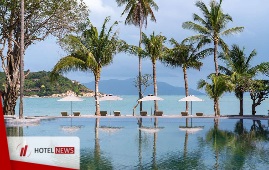
Meliá Hotels International and Asset World Corporation (AWC), Thailand's leading integrated lifestyle real estate group celebrated the grand opening of Meliá Koh Samui, a stunning nautical-themed luxury beachfront resort in Koh Samui. The soul-stirring coastal haven, which combines a modern essence with the charming maritime heritage of Koh Samui, marks the first hotel under the Meliá Hotels & Resorts brand to open in Thailand. This opening of Meliá Koh Samui is the start of a strategic roll-out of the Meliá brand in Thailand and at least two more hotels will be opened in key destinations across Thailand, including INNSiDE by Meliá Bangkok Sukhumvit and a hotel in Chiang Mai in partnership with AWC. Nestled on Choeng Mon Beach, just 15 minutes from Samui International Airport, Meliá Koh Samui is a 159-room and 41-suite property that features a host of outstanding facilities, including two restaurants, an executive lounge, a stylish beach club and a swim-up bar, plus the YHI Spa, a fitness center and, for families, a kids' club, outdoor playground and a mini water park. Event planners can take advantage of extensive conference facilities of 7 multi-functional rooms including a room with unique beach front view, a ballroom that can accommodate up to 200 guests and an outdoor pool-side and beachfront function spaces which recently hosted a gala dinner for 500 guests. With its stunning seafront setting and exceptional amenities ideal for leisure and MICE travelers, Meliá Koh Samui will become one of the leading and most sought-after resorts on Koh Samui's north coast, a world-class tourism destination with outstanding facilities for all sectors of the market. Guests can also unwind in two outdoor swimming pools, including a large lagoon pool that loops like a river through the resort's lush tropical gardens. Many of the ground-floor Pool Access rooms and suites allow guests to slide directly into the embrace of cooling pool water from their private terrace. The Deluxe and Premium Rooms are ideal for couples, while the spacious Family Rooms feature a master bedroom for parents and in-room games for the kids. Guests seeking extra space and exclusive services can select the resort's suites that offer access to the executive lounge. The Level Boat Suites are truly unique, inspired by traditional Thai vessels and paying homage to Koh Samui's historic position as a safe haven for sailors and sea traders. This nautical design theme has been woven into the DNA of the resort, including the Level Lounge, which is shaped like a boat's hull. Embodying AWC's firm belief in “building a better future", and Meliá Hotels International's efforts to improve lives in disadvantaged communities across Thailand, Melia Koh Samui also houses the Gallery, a not-for-profit social enterprise of art and design gift shops under the aegis of the Asset World Foundation for Charity , which embraces socially responsible practices to contribute to society and communities. The shop will give customers the opportunity to be part of supporting the local communities with all profits contributing to further artistic endeavors, as well as preserving and promoting local culture and areas in need. Meliá Hotels International has been recently acknowledged as the Most Sustainable Hotel Company worldwide, by the SAM's Corporate Sustainability Assessment and sustainability is what the group wishes for from the beginning. “We are thrilled to partner with Meliá Hotels International and to introduce the Meliá Hotels & Resorts brand to Thailand for the first time. With its stunning seafront setting Meliá Koh Samui aims to offer a truly unique experience. As the hotel boasts the first lagoon pool and the largest swimming pool in Koh Samui, along with a creative combination of hydro therapy facilities like jacuzzi, water massage and rooms with a direct pool access, guests will find themselves relishing in the soothing fascination of water features. The hotel also offers a unique experience for guests who will be able to stay in suites fashioned after boats. These unique settings will enable them to enjoy a fun-filled and peaceful vacation in a serene atmosphere," said Khun Wallapa Traisorat, Meliá Koh Samui's owner, CEO and President of AWC. “This landmark project will mark the start of a strategic roll-out of the Meliá brand in Thailand, in line with AWC's growth-led strategy. Together, we aim to build a better future for Thailand's hospitality landscape and economy , and partnering with Meliá will allow us to set a new benchmark for Thai hospitality and drive global demand." “Today is a ground-breaking moment for Meliá Hotels International, as we celebrate our first hotel opening in Thailand – an extraordinary country and a strategic market for a leading global resort brand like ours. After more than 30 years of successful operations in Asia, we signed a strategic framework agreement with Asset World Corporation, we believe this first opening of Meliá Koh Samui is the beginning of our expansion in Thailand, bringing our dream of establishing and growing in this country alongside a major local partner to fruition; a partner that understands, and shares, our strong service and hospitality philosophy, a fundamental factor for ensuring the quality, reputation, and sustainability that we wish for Meliá Koh Samui," commented Mr. Gabriel Escarrer, Executive Vice Chairman and CEO of Meliá Hotels International at the opening ceremony. Beyond Thailand, Meliá Hotels International is expanding throughout Asia Pacific and has a total of 51 properties across the region, which are expected to open in the next few years.
Create: Jan 18, 2020 Edit: Jan 18, 2020 International News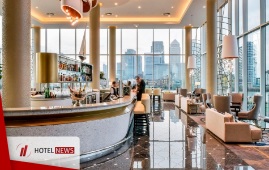
The IHG Owners Association, which represents IHG® franchise hotel owners worldwide, announced that Wayne West III has assumed chairmanship of its Global Board of Directors for 2020. West is President and Partner of Newport Hospitality Group, based in Williamsburg, Va., and brings an extensive background as a hotelier and operator. With more than 40 years in the industry, he has helped hotels maximize guest loyalty and team engagement while ensuring exceptional revenue performance and profitability. He succeeds 2019 chair Kurt Furlong, Chief Revenue Officer and Partner with Genuine Hospitality, LLC. Newport is a hotel management company that operates more than 50 select, full-service and independent hotels under various brands, primarily on the Eastern Seaboard. West joined the company in 2013 as Chief Operating Officer and quickly advanced to his current position as President. Previously, he was with Lane Hospitality (now Spire Hospitality) for 12 years, serving as Chief Operating Officer for the last three. West has also held executive positions with several other leading hospitality compa-nies. "I’ve been proud to serve on the IHG Owners Association Global Board for the past year as Treasurer, and I’ve enjoyed my leadership responsibilities as Vice Chair and then Chair of the Americas Regional Council (ARC),” says West. “I am very hon-ored to now assume the role of Chair of the Association. I look forward to representing the interests of our members around the world and connecting with IHG leadership on their behalf.” West has been an active member of the Association for many years having served as Chair of the Holiday Inn Committee and several other Association working groups, including the Strategic Planning and Standards Committees and the Holiday Inn Food & Beverage Council. Don Berg, CEO of the IHG Owners Association, notes, “Wayne’s deep, first-hand knowledge and experience in all areas of hotel operation will certainly benefit the work of the Association on many levels. His profound hotel management acumen will provide authentic and intelligent thought leadership to our members.” West attended East Carolina University and earned his Certified Hotel Administrator designation from the American Hotel & Lodging Association. He resides with his wife, Marianne, in a small lakeside town in North Carolina. The IHG Owners Association is also pleased to announce its 2020 Global Board of Directors: Chair-Elect & Americas Member at Large: Norman Leslie, President and Founder, National Hospitality Services Treasurer & Americas Member at Large: Navroz Saju, President and CEO, HDG Hotels Secretary & Americas Member at Large: Nellie Dhanji, Vice President of Operations and Legal Counsel, Stanley Park Investments, Ltd. Immediate Past Chair Advisor: Kurt Furlong, Chief Revenue Officer and Partner, Genuine Hospitality, LLC Past Chair Council Representative: Kerry Ranson, Chief Development Officer, HP Hotels CEO, IHG Owners Association: Don Berg Europe Regional Representative: Maurice Jansen, COO, EVENT Hotels Middle East/Africa/Asia Regional Representative: Paul Salter, Managing Director, Salter Brothers Asset Manage-ment and CEO and Managing Director, Salter Brothers Hotel Group Americas Regional Representative: Mark Zipperer, President and CEO, Pride Hospitality, LLC Americas Member at Large: Asad Malik, President and CEO, Amerilodge Group Americas Member at Large: Euan McGlashan, Co-Founder and CEO, Valor Hospitality Partners Americas Member at Large: Perry Molubhoy, Founder, President and CEO, Atlantic Hotels Americas Member at Large: Juan Carlos Santos, CEO, BPO Americas Member at Large: Felix Seiler, COO, Holloway Lodging Corporation Americas Member at Large: David Wespiser, Founding Partner, Hotel Development Services, LLC Europe Member at Large: John Stuart, COO, RBH Hospitality Management IHG Representative: Elie Maalouf, CEO, IHG Americas
Create: Jan 18, 2020 Edit: Jan 18, 2020 International News
Frontline Employee Recruitment and Selection Technique 1 Design Creative Job Announcements; In order to draw a strong applicant pool for open posi- tions, the position announcements must be well-crafted. The hotel’s marketing department should either write or help edit such descriptions. Without sacrificing truth in advertising, creative-minded marketers can often produce more interest- ing and appealing announcements than those who are more operations-minded. Technique 2 Foster Relationships with Educational Institutions; Often, the best line-level associates and entry-level manag- ers can be drawn from trade schools, colleges, and universities that offer hospitality management programs. All hotels (even free-standing, independent hotels) should have active relation- ships with one or more hospitality educational institutions. Technique 3 Participate in Career Events; A representative from the hotel’s management team should speak at local high school career days. Not only does this exposure foster positive community relations, but also the students are a good source of potential employees for certain positions. Technique 4 Encourage Employee Referrals; Line-level associates should be encouraged to recruit their friends for open positions. Because the line-level employee is knowledgeable about the hotel’s working culture and also knows his/her friends, this combination of knowledge puts him/her in an informed position to assess the potential match. Technique 5 Utilize 360-Degree Interviewing; Utilize 360-degree interviewing in which a candidate is interviewed not only by who s/he will be reporting to, but also by peers and potential subordinates. While this approach mandates interview training, there are several benefits. Namely, when a candidate is interviewed by future subordi- nates, his/her emotional intelligence, and rapport-building skills can be assessed. The 360-degree interviewing also gives those involved a sense of buy-in and engenders an empower- ment culture. Technique 6 Use Panel-Style Interviewing; Front-of-the-house position candidates should be sub- jected to the panel-style interviewing in which they are interviewed by more than one person at once. Panel-style interviewing allows for the ability to test a candidate’s confi- dence and conversational ability in a situation in which some would find intimidating. For the purpose of practicality, a panel interviewing approach can be combined with the 360 degree interviewing described in the previous technique. Technique 7 Encourage Multiple-Day Interviewing; Whenever possible, applicants for the line-level positions should be asked to return for interviews on more than one day in order to gauge their dependability and demeanor at various points in time. Technique 8 Assess Applicant Conversational Ability; During interviews, front-of-the-house applicants should be asked questions that test their conversational abilities. One such question might include ‘If an alien lands on earth, how would you describe to the alien how to make a peanut butter and jelly sandwich?’ Technique 9 Assess Applicant Creativity; During interviews, front-of-the-house applicants should be asked to complete tasks that assess their creative talents. For instance, they could be given four minutes to write all of the uses that can be thought of for an object (e.g., a blanket) and then given four more minutes to write all of the uses that can be thought of for a different object (e.g., a brick). This task is termed a divergence test, and responses can be rated based upon the following criteria : 1- F luency—how many meaningful ideas are generated in response to the stimuli? 2- O riginality—how rare are the given responses? 3- E laboration—how much detail is contained in the responses? Technique 10 Assess Applicant Team-Mentality; During interviews, front-of-the-house applicants should be asked to tell a story about a time when they delivered exceptional customer service experience either at a hotel or any other service business. Candidates who recount stories in which they worked with past coworkers to deliver the experi- ence are likely more team-oriented than those who only discuss their own actions . Technique 11 Assess Applicant Problem Solving Skills; During interviews, a technique should be used to gauge the problem-solving skills of frontline associates. One such technique entails showing the candidate a container filled with small items, such as paperclips, and asking how s/he would go about estimating the number of items in the con- tainer (without opening it). Technique 12 Assess Applicant Innovativeness; On the application form for college students to intern at the hotel, ask the internship applicants to write a paragraph detailing a creative solution to a problem. For example: “Please describe one innovative solution to reducing guests’ perceived waiting times at check-in.” Technique 13 Incorporate a Walk-Through During an Interview; As part of the interview process, walk the applicant around the job area and observe how s/he interacts with the employ- ees as well as the guests. These observations provide a glimpse into the likely tone of interactions they will have if hired. In addition, when you let him/her see the work area and tasks, s/he may decide this is not a good fit or might become more excited about the prospect of working there. Technique 14 Incorporate a Slideshow During an Interview; When interviewing a job candidate, if the interviewer is pleased with the performance of the candidate, the inter- viewer should complete the meeting by showing the can- didate a slideshow on his/her laptop. The slideshow should include pictures of team members and pictures of them interacting. While viewing the pictures, stories can be shared regarding how the team members have been developed to be key players. Technique 15 Reinforce Reputation During an Interview; When interviewing a job candidate, if the interviewer is pleased with the performance of the candidate, the inter- viewer should make a point of telling the applicant about some of the accolades won by the hotel, the brand, and/or the man- agement company.
Create: Jan 18, 2020 Edit: Mar 7, 2020 Hotel Management
UK hoteliers face a tough year in 2020 with a growth in rooms supply increasing competition and dampening revenues, despite underlying demand remaining strong. ‘Hotels in the UK provinces found 2019 challenging and there seems to be little opportunity to improve this performance in 2020,’ commented HVS London chairman Russell Kett. ‘The pipeline of new hotel openings will continue to add further pressure to many hotels which have experienced a decline in occupancy and average rates, sometimes both. Once the current pipeline has worked its way through and post-Brexit demand levels have picked up, positive growth should be seen as we move into 2021 and 2022,’ he added. Demand for hotel rooms in London remained at a strong level throughout 2019 and hotels are likely to see a continuation of this, notwithstanding the growth in supply, especially at the luxury end of the market, which may lead to a softening of hotel occupancy levels. ‘Average rates in London should continue to grow, however, so overall RevPAR [rooms revenue per available room] is likely to remain flat throughout the year,’ added Kett. HVS has identified five key themes likely to impact the sector moving forward into the new decade – the need for a personalised offer; the importance of developing a relationship with the guest; the issue of corporate responsibility; attracting and retaining good staff; and the need to maximise profitability. Whether a hotel will get a particular guest’s business now depends on whether it will provide an appropriate experience beyond the minimum expectation of a comfortable bed, decent shower, fast efficient Wi-Fi and good value for money,’ said Kett. ‘Gen X and Gen Y travellers seek a more personal offer – an experience to remember that they can’t get elsewhere.’ Furthermore, hotels and hotel companies can no longer rely on loyalty schemes to build a relationship with guests as many no longer care about incentives such as free stays, especially when they are restricted from redeeming them. Hoteliers need to find a way to develop a meaningful relationship with customers to enhance their loyalty. HVS’s third concern is that of sustainability and social responsibility, which is increasingly forming part of consumers’ – and investors’ – decisions. It’s now essential for hotel operators to have such policies and to communicate them effectively to the guest – paying lip service isn’t enough. Credible environmental policies are now an essential part of business life. Likewise, the ongoing importance of attracting and retaining staff through competitive packages, providing training and meaningful career development has never been more vital in the sector, particularly post Brexit. Making staff feel part of a ‘family’, providing a flexible working environment and profit-sharing are already starting to make a huge impact in some businesses and more needs to be done to make the sector more attractive to potential recruits who live in the UK as well as ensuring current vacancies can be filled. Lastly, hoteliers need to ensure that as many areas of their hotel as possible are income producing in order to deliver a proper return on investment. A minimum of 15%, but preferably 20% profitability should be sought from F&B operations, for example, with under-performing areas of a hotel developed to provide overnight guests and non-residents with a well-designed range of refreshment options that make money. Concluded Kett: ‘The world is changing fast and hoteliers need to adapt and incorporate these changes in a creative way in order to survive and prosper.’
Create: Jan 13, 2020 Edit: Jan 13, 2020 International News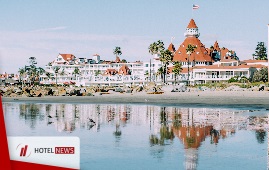
Eden Prairie (Minneapolis) MN, January 2020 … Bigger, bolder and now independent – Big Box Hotels are increasingly breaking off from major brands and deploying their expansive meeting spaces, extensive room inventory and outstanding technical services to become independent operators. It’s a growing trend that offers planners the advantages of a large hotel accommodating groups of up to 3,000 attendees while providing a level of flexibility and creativity once reserved for boutique properties and smaller brands. Teneo Hospitality Group, the leading group representation firm, is responding to this development by introducing its newest collection of member hotels – the Big Box Collection, which now includes 52 independent and smaller-branded member hotels across the United States, Europe and Dubai, United Arab Emirates. Eleven of these are offering special hot dates and incentives, available throughout 2020 and accommodating meetings in several prominent destinations including Boston, Chicago, Dallas, Honolulu, Orlando, Reno, San Diego and the Temecula Valley Wine Country in California. “This move from Big Box brands to independent status is a significant trend,” says Teneo President Mike Schugt. He notes that for the last 20-30 years, many boutique hotels have transitioned to independent or soft branded properties. This paved the way for many larger, branded properties to declare their independence and reap the benefits of autonomy. Big Box brands are able to provide far more options to planners and guests, unfettered by frequently inflexible policies of a large corporate brand. Often operating without a brand name, these newly independent hotels have embraced a creative, personalized culture based on the offering’s boutique hotels initiated 20 years ago. “We now see highly-customized, catering-to-all-your-senses experiences available to larger groups in the Big Box hotels we represent,” says Mike Schugt. Hoteliers are capitalizing on the new opportunities to bring in the best, most personalized aspects of the boutique concept – customized service that focus on issues important to guest satisfaction. These include sustainability, curated experiences, imaginative décor, music, scent, lighting, original art and architecture, raising the bar in food and beverage services – all without the cookie-cutter limitations that can be imposed by major brands. Planners should welcome this growing trend, according to Schaan Baker of Phillips Ultrasound. “The Big Box concept gives planners new options, sophisticated technical services, greater value and return on investment, a chance to explore new destinations, and the creative energy and resourcefulness of an independent or smaller brand property,” she notes. This creative, flexible approach lets hotels showcase the best of their destination. For example, the Boston Park Plaza, a Boston icon for nearly a century, has added a loft-like contemporary event space, Avenue 34, to its three magnificent ballrooms. In Hawaii, the new Alohini Resort, Waikiki Beach, offers a spectacular lobby Oceanarium and the Thrillist, an adventurous program of helicopter tours and horseback rides to plant legacy trees in Hawaii’s forests. At the Omni Dallas, planners can see their brand’s name in lights on the Dallas skyline, thanks to the mile of LED lights placed around the building. “By declaring their independence, many larger hotels are able to create their own, singular brands, free from rigid corporate policies and operating restrictions,” says Mike Schugt. He also notes that the trend toward autonomy dovetails perfectly with planners’ demand for more diverse meeting space, greater options in accommodations and the most sophisticated technology. At the same time, planners are calling for a less rigid, more open approach to the planning process. “Independent hotels are better able to provide a creative, workable and unique environment,” says Mike Schugt. He also sees this trend expanding and continuing for the foreseeable future. “Over 50 Big Box hotels have recently become independent,” Mike Schugt says. “We are proud that a significant number of them have become Teneo members, recognizing our commitment to promoting independent hotels and smaller brands.” Hotels in Teneo’s Big Box Collection, offering Hot Dates and Special Promotions throughout 2020, span historic landmarks, beachfront resorts, sophisticated urban hotels and major conference center hotels accommodating up to 3,000 attendees. -Alohini Resort, Waikiki Beach, Honolulu, Hawaii -Boston Park Plaza, Boston, Massachusetts -Caribe Royale, Orlando, Florida -Hotel del Coronado, San Diego, California -The Fairmont Chicago Millennium Park – Chicago, Illinois -The Fontainbleau, Miami, Florida -The Loews Meeting Complex at Universal Orlando, Orlando, Florida -The Omni Dallas, Dallas, Texas -The Pechanga Resort and Casino, Temecula, California -The Peppermill Resort Spa & Casino, Reno, Nevada -Rosen Hotels, Orlando, Florida
Create: Jan 11, 2020 Edit: Jan 11, 2020 International News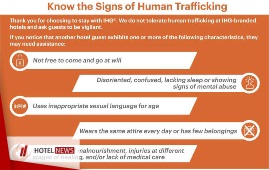
January is recognized as National Slavery and Human Trafficking Prevention Month in the US and IHG® has intensified its ongoing effort to fight human trafficking. The company has introduced new programs, tools and resources for colleagues to increase awareness and aid prevention of human trafficking, including a free training available to all IHG-branded hotels worldwide, including more than 4,200 properties in the Americas. Human trafficking, a form of modern slavery, is a $150 billion criminal enterprise that brings suffering and injustice to an estimated 40 million men, women and children across the globe, according to the International Labor Organization. It is a domestic and international issue that is present in communities of all sizes with individuals of all ages and backgrounds trafficked and exploited for purposes including sexual abuse and forced labor. Elie Maalouf, Chief Executive Officer, Americas, IHG, said: “At IHG, we condemn human trafficking in all forms, and we are taking a strong stance in partnership with our owners, elected officials and others in the industry. We are committed to protecting our guests, communities and owners from the impact of human trafficking as well as maintaining the integrity of IHG’s brands. We will not tolerate it, or those who would enable it, in the IHG system of hotels, and we are empowering all of our colleagues with the tools, resources and support they need to combat this crime on every level.” Most recently, in December, IHG hosted dozens of colleagues from local Georgia hotels for a group training and discussion at the Crowne Plaza® Atlanta Perimeter at Ravinia, located near the company’s Americas headquarters in Atlanta. During the event, attendees learned about the work to fight human trafficking in Georgia from First Lady Marty Kemp, as well as support and assistance programs available for survivors from Mary Frances Bowley, founder and executive director of non-profit Wellspring Living. “Our partnership with the hotel and lodging industry is forged by a common goal: ending human trafficking in Georgia,” said First Lady Kemp. “I applaud IHG’s efforts to train employees on identifying the warning signs of trafficking and supporting survivors. Education and awareness are key in this critical fight, and this training equips staff with the potential to save lives.” IHG has released a new video featuring a one-on-one conversation with First Lady Kemp and Colleen Keating, Chief Operating Officer, Americas, IHG, where the two leaders discuss the importance of public-private partnership in the fight against human trafficking and progress in the state of Georgia. Since its launch in summer 2019, colleagues in more than 2,300 hotels across the U.S., Canada, Latin America and the Caribbean have completed IHG’s online anti-human trafficking training. The company expects colleagues in all IHG-branded hotels in the region to have completed the training by March 2020. Additionally, IHG continues to work closely with a variety of organizations such as the American Hotel & Lodging Association (AHLA), Asian American Hotel Owners Association (AAHOA) and Georgia Hotel & Lodging Association (GHLA) to share best practices, coordinate efforts and attack the issue on all levels. The company has also engaged in additional collaborative efforts, such as commitments to ECPAT and the criteria of The Code, as well as the AHLA 5-Star Promise. IHG also actively supports non-profit organizations that provide essential goods and services to support the recovery of human trafficking survivors, and coordinates regular volunteer opportunities for colleagues. IHG is a global company with a presence in more than 100 countries. The company considers addressing human trafficking a key component of its larger commitment to responsible business and at the core of how it operates. Read more about the company’s position and its consistent standard across every market in its global Human Rights Policy.
Create: Jan 11, 2020 Edit: Jan 11, 2020 International News
Extraordinary can’t happen in an ordinary place, and the launch of Six Senses New York at the end of 2020 is an exciting moment as the brand plans to open its first urban hotel in the United States. The XI in New York City is an extraordinary collaboration between visionary minds, and example of what happens when you toss the rulebook on what’s expected. Outside, the iconic twisting towers defy any attempt to keep the buildings in a standard rectangular shape. This is just as architect Bjarke Ingels intended: “In the case of the XI, we have the chance to make the world a little bit more like our dream world.” Inside, Six Senses New York will deliver a transformational experience rooted in immersive well-being. Residential owners, hotel guests and local club members will have access to some of the most pioneering wellness programming in the world, along with large spaces for working and entertaining and innovative culinary options. Look no further than the club roof, which will double as an organic veg patch, or dance floor, depending on how the mood takes you! Situated on a full city-block in vibrant West Chelsea, the XI rises above the Hudson River and the world-famous High Line in Manhattan. The hotel occupies ten floors of No. X and will open with 136 guest rooms and suites, a restaurant just off the High Line and a café with an outdoor terrace. Sustainability plays a central role in each element of the hotel, with the property adhering to the same guiding values that inform all Six Senses properties. Interiors are designed by celebrated Parisian firm Gilles & Boissier. Neutral colors and natural materials combine with light wood floors, charred wood accent walls and stonework to create a sense of tranquility against the dramatic backdrop of the ever-shifting city skyline. Local artisans also bring their take on Manhattan through individual artworks featured throughout the hotel. The large, asymmetrical walnut doors at the entrance serve as a reminder that within nature’s imperfection lies perfect beauty. Luxury resorts and getawaysExtraordinary can’t happen in an ordinary place, and the launch of Six Senses New York at the end of 2020 is an exciting moment as the brand plans to open its first urban hotel in the United States. The XI in New York City is an extraordinary collaboration between visionary minds, and example of what happens when you toss the rulebook on what’s expected. Outside, the iconic twisting towers defy any attempt to keep the buildings in a standard rectangular shape. This is just as architect Bjarke Ingels intended: “In the case of the XI, we have the chance to make the world a little bit more like our dream world.” Inside, Six Senses New York will deliver a transformational experience rooted in immersive well-being. Residential owners, hotel guests and local club members will have access to some of the most pioneering wellness programming in the world, along with large spaces for working and entertaining and innovative culinary options. Look no further than the club roof, which will double as an organic veg patch, or dance floor, depending on how the mood takes you! Situated on a full city-block in vibrant West Chelsea, the XI rises above the Hudson River and the world-famous High Line in Manhattan. The hotel occupies ten floors of No. X and will open with 136 guest rooms and suites, a restaurant just off the High Line and a café with an outdoor terrace. Sustainability plays a central role in each element of the hotel, with the property adhering to the same guiding values that inform all Six Senses properties. Interiors are designed by celebrated Parisian firm Gilles & Boissier. Neutral colors and natural materials combine with light wood floors, charred wood accent walls and stonework to create a sense of tranquility against the dramatic backdrop of the ever-shifting city skyline. Local artisans also bring their take on Manhattan through individual artworks featured throughout the hotel. The large, asymmetrical walnut doors at the entrance serve as a reminder that within nature’s imperfection lies perfect beauty. The remarkable 45,000 square feet of space dedicated to wellness illustrates the emphasis Six Senses places on this core value. The full-service spa will offer a vibroacoustic meditation dome, bathhouse and magnesium pool, Holistic Anti-Aging Center, fitness center, yoga studio, many social spaces with cafés, a restaurant, juice bars, co-working and lounge areas. The integrative wellness clinic will base treatments and activities on the preventative principles of the Eastern medicine approach and results-oriented Western influences. Building a presence in key cities is an exciting new chapter for Six Senses, but one that still stands for finding connection and reconnection in our world today. When the XI opens next year, it will have dedicated children’s and teen’s rooms to ensure Kids go VIP in New York
Create: Jan 11, 2020 Edit: Jan 11, 2020 International News
NH Hotel Group will operate a unique portfolio of eight high-end hotels with a total of 1,115 rooms in prime locations in Europe – in Italy, France, Czech Republic and Hungary. NHH will lease the hotels from Covivio, a leading European real estate investor. The hotels will be rebranded to Minor International and NHH’s hotel brands, including Anantara and NH Collection, following an extensive repositioning work programme to be pursued by Covivio in all the properties in the coming months. The hotels, formerly the prestigious Boscolo portfolio, consists of six iconic properties, including Palazzo Naiadi in Rome, Italy; The Carlo IV in Prague, Czech Republic; Hotel Plaza in Nice, France; The NY Palace and The NY Residence in Budapest, Hungary; and Grand Hotel Dei Dogi in Venice, Italy; and two premium hotels in Italy, namely Bellini Hotel in Venice and Palazzo Gaddi in Florence. After the acquisition by Covivio of the eight hotels, NHH will operate this high-end hotel portfolio under a long-term sustainable lease contract. The closing of the transaction is expected to be fully complete by the end of the first half of 2020. The handover of the hotels will take place at the same time of the closing, except for the hotels in Florence and Nice, which are currently under a full refurbishment, and expected to be completed by June 2020 and January 2021 respectively. “MINT and NHH have been leveraging on both parties’ strengths for cross-expansion”, said Mr. Dillip Rajakarier, Group CEO of MINT and CEO of Minor Hotels. “We are very excited about the potential of the Anantara brand in Europe. Anantara’s brand strength, coupled with NHH’s strong relationship with real estate investors has enabled us to expand our luxury hotel portfolio in Europe at a much faster pace. Following the launch of Anantara Villa Padierna Palace in Spain in July and the signing in October of a hotel in Dublin, Ireland, to be rebranded to Anantara in 2020, this strategic transaction will notably strengthen the presence of our luxury Anantara brand in key privileged destinations in Europe.”
Create: Jan 11, 2020 Edit: Jan 11, 2020 International News
Adventure tourism is one of the fastest growing segments of the tourism industry, with a global market valued at $586 billion in 2018, and projected to reach $1,627 billion in 2026. However attractive this sector seems to be, drawing adventure tourists is no easy feat. Adventure travel providers need to understand, first of all, that travel trends and travelers’ preferences keep changing from time to time. What works this year may not work next year. Tourism professionals therefore have to always stay ahead of the curve. Today, there is a real thirst for authenticity of a destination, bound up with sustainability concerns including support for local businesses, reducing plastic consumption, community outreach and cultural sensitivity, especially in the adventure travel sector. Adventurers used to prioritise personal challenges and individual thrills. Now that “authenticity” ascends as the travel buzzword, they prefer to immerse themselves in authentic and local culture, from the history and traditions of the place to gastronomic routes and local products. This change of trend is reflected in the world’s largest tourism source market. Chinese tourists are becoming less satisfied with superficial tourist activities and shopping and increasingly driven by a desire to explore authentic, social and shareable experiences at the destinations they travel to. Accordingly, tourism providers in many countries are now providing different types of tourism products which create an authentic tourism experience. In Australia, tourists can participate in indigenous tourism activities such as traditional festivals, dances and guided tours, together with aboriginal Australians. Another example is the cookery classes offered in South-East Asian countries such as Thailand, Vietnam and Indonesia, in which tourists have the opportunity to cook with a local chef using local ingredients, recipes and cooking techniques. Not only do tourists today want to have unique, personalised journeys, they also want to create a positive impact when they travel. According to Booking.com, 72% of travelers makes more sustainable travel choices, and up to 73% of global travelers intends to stay in an eco-friendly or green accommodation.* “Travellers are thinking about who we’re giving our money to, where it’s going and how our actions and that of our accommodation choices could be kinder to people and places,” Juliet Kinsman, founder of bouteco.com, told National Geographic. Despite good intentions, the survey reveals that 37% of global travelers do not know how to make their travel more sustainable. The challenge thus lies not only on travel providers to have a strategy for sustainability but also to effectively communicate it to their clients. Some may struggle with initiating sustainability approaches or creating meaningful authentic products, while others do not know how to send a message to the audience. On February 12-14, 2020, international experts will gather in Kota Kinabalu, Sabah, Malaysia to address these issues as well as discuss opportunities in this dynamic tourism sector at the PATA Adventure Travel Mart and Conference 2020. Under the theme “Ahead of the Curve: Authenticity and Sustainability in Adventure,” the one-day conference includes concurrent sessions that allow participants to delve deep into the top trending themes in travel: sustainability and authenticity. Each session features a 45-minute presentation, followed by a 1.5-hour workshop with working exercises. Led by Eric Ricaurte, Founder & CEO, Greenview (Singapore), the Sustainability Track will look into responsible initiatives used by tour operators, accommodations and destinations – and how to message them to clients, including best practice examples from companies around the world and guidance on how to integrate sustainability ideas into day-to-day business operations. The Authenticity Track will looks at how to integrate adventure elements into tour programmes, including how to identify and use local resources (guides, food, architecture, etc) to create more authentic and meaningful experiences for travellers. This track will be led by Dan Moore, CEO, Consultant, Lead Facilitator, Pandion Consulting & Facilitation (USA). The PATA Adventure Travel Conference and Mart (ATCM) 2020 is Asia Pacific’s leading travel trade event dedicated to the adventure travel industry.
Create: Jan 11, 2020 Edit: Jan 11, 2020 International News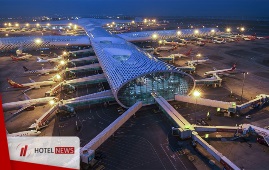
Airlines and airports in China are moving to another level of passenger service: They are embracing artificial intelligence and automation to provide the hyper-personalized self-service experience their passengers are demanding. According to the SITA 2019 China IT Insights, China’s airlines and airports are using these technologies to expand mobile services and automating the journey with self-service every step of the way. A key technology that is attracting investment is artificial intelligence (AI). SITA’s China IT Insights reveals that 88% of both airlines and airports are planning major programs, or R&D, with AI by 2022 and they are focusing on virtual agents and chatbots. This investment matches the demands from passengers; SITA’s research of passengers in China shows that 64% of them want a digital travel concierge. Already nearly half (43%) of airlines in China have AI-driven chatbot customer services and the planned investment should see the availability of them rising quickly over the coming years. May Zhou, Vice President and General Manager of SITA China, speaking at the SITA China Air Transport IT Summit in Nanning, said: “China’s airlines and airports have a strong record in embracing technology and automation to drive efficient operations and high levels of passenger services. Now they are moving to the next level where they will harness artificial intelligence to deliver more services, faster and to more people.” For passengers of China’s airlines and airports, self-service has reached a strong level of maturity, but a step-change is coming as biometrics is being adopted. Today, 27% of airports have self-boarding gates using biometrics with travel documents but in just three years this will jump to 66%. And more than half of the airports have plans for secure single biometric tokens for all touch points by 2022. Airlines too are committing to self-boarding gates using biometrics with ID, 60% are planning to use them driving a secure and seamless passenger experience right through the airport with the next three years. Zhou added: “The adoption of self-service by passengers across China has been very encouraging for airlines and airports. At SITA, we see many in the industry who are now ready and planning to add biometrics to bring self-service to the next level.” Mobile services are vital to meet China passengers’ demands and by 2022, all airlines and 93% of airports are planning investments in them. Services including flight discovery, airline offers, check-in and flight status notifications via mobile are already provided by all airlines. One fifth are also using mobiles to sell newspapers, magazines and movies/TV to passengers. Airports too are investing in mobile services to offer a more personalized experience for passengers. Services including, notifications about flight and airport status, and customer relationship management are well established and are offered by up to 81% of airports. Keeping the passenger informed and connected is not only what China’s airports are providing via mobile, they are also facilitating mobile payments. Close to three quarters enable passengers to buy airport services and allow cashless payments via mobile. This hyper-personalized service via mobile confirms it as a vital tool for China passengers. The report highlights that blockchain technology is another key area of investment for airlines, today only 24% have major programs, or R&D, planned but this is set to jump to 80% by 2022. This is in line with the recent trends and commitments to blockchain technology in the country.
Create: Jan 7, 2020 Edit: Jan 7, 2020 International News
The eleventh voco™ property and first in South Eastern Europe, is located on the fringe of popular Podgorica and re-branded under IHG’s newest upscale brand, offering a modern, stylish and unstuffy hotel experience for guests. The 81-room hotel embodies the characteristics of voco™ with exclusive features and distinctive hallmarks, setting it apart for a memorable stay. Located just outside of the historic capital city of Montenegro, the hotel is surrounded by rugged mountains and is close to Skadar Lake National Park, an area noted for its diversity of flora and fauna. Every guest will experience the voco™ signature ‘come on in’ warm welcome, promising a swift and simple check in, with dedicated voco™ hosts available throughout the guest’s stay as resident experts, and a locally inspired welcome treat, a traditional nut cake. Inspired by its surroundings, voco® Podgorica takes local influences and blends it with contemporary interiors throughout to hotel to leave guests with a lasting impression. The refurbished guest rooms benefit from the voco™ design concept with thoughtful comforts like cosy bedding made from 100% recycled materials, Korres amenities in larger dispenser bottles, and fast Wi-Fi so guests can relax and indulge in some ‘me time’ when they stay at voco™ hotels. Guests can enjoy a taste of ‘voco™ life’ with delicious, locally inspired dishes at the hotel restaurant or unwind over drinks in the peaceful surroundings of the lobby bar with friends and family. For those looking for pure relaxation, the hotel wellness and spa club featuring an Olympic half size pool, gym, spa and treatment rooms as well as a newly built sports hall offering a wealth of opportunities to unwind. For those looking for an alternative space for meetings, voco® Podgorica is the ideal venue for corporate events. With 3 versatile meeting rooms, the hotel can adapt to suit your needs whether you need to host a conference or simply require a room for a team outing. A designated onsite event planner will support you from booking to event day to ensure an unstuffy and smooth-running event. Milena Brajovic, General Manager, voco® Podgorica said: “We are excited to be the first voco™ property to open in South Eastern Europe. Our hotel offers guests the opportunity to relax in a rural setting whilst only being a short distance from a truly historical and beautiful city. voco™ is all about delivering great guest experience and we look forward to offering a warm welcome to guests, old and new, when they choose to stay with us.” The hotel guest rooms benefit from the voco™ design concept, which includes sustainable initiatives to help guests sleep easier. voco™ bedding is made from 100% recycled materials, with an estimated 150 plastic bottles recycled per guest room through bedding alone. In addition, miniature bottles have been removed from the hotel, and have been replaced with bulk size Korres products in large-format bottles which produce 80% less waste than miniatures. Glass water bottles mean that the hotel remove an average of 300 plastic bottles in every guest room per year and the hotel also provides aerated shower heads in their bathrooms to reduce water usage.
Create: Jan 7, 2020 Edit: Jan 7, 2020 International News
Bedsonline confirms strong growth in room night sales as a result of new brand identity and proposition launch in January 2019, up by around 40% year-on-year. Following integration of GTA and Tourico Holidays into parent group, sister brand TravelCube’s customers migrated onto Bedsonline’s class-leading booking platform in January – increasing from 55,000 to 180,000 the number of hotel properties available. Australia is the 3rd biggest source market for the combined Hotelbeds and Bedsonline brands’ Asia-Pacific and 7th biggest globally, up from 8th place last year. Bedsonline to organize a ‘famil’ trip for Pacific top travel agents in 2020. Bedsonline, the leading global provider of accommodation and complementary travel products exclusively for travel agents, has today confirmed strong growth in Australia. According to Bedsonline’s booking data, since the launch of the new brand identity and value proposition in January 2019 the number of room nights sold from the Australia source market has grown by approximately 40% year-on-year. As a source market Australia remains the combined Hotelbeds and Bedsonline brands’ 3rd biggest source market in the APAC region and the 7th biggest source market for the company globally, up from 8th place last year. This growth has been driven by the new value proposition of Bedsonline, following the integration of GTA and Tourico Holidays into Bedsonline’s parent group and sister brand TravelCube’s customers migrating earlier this year onto Bedsonline’s class-leading booking platform. The new and enhanced platform now gives travel agents a powerful and user-friendly technology, along with local support, plus a diverse and competitive product portfolio – increasing from 55,000 to 180,000 the number of hotel properties available, whilst also providing 24,000 transfer routes and 18,000 activities, plus 140,000 cars available for hire. To continue this growth Bedsonline plans to host 20 travel agents from the Pacific region for a ‘famil’ trip in 2020, details of which will be published soon. The purpose of this trip is to acquaint travel agents with the services and offerings of Hotelbeds’ partner hotels in the chosen destination. Peter Jones, Regional Sales Manager, Pacific at Bedsonline commented: “I am very proud to see the outstanding sales growth in Australia this year. The result has been driven by our new and enhanced platform but is also a reflection of our hard work and persistence in the Pacific region and I´d like to congratulate every team member – as well as, of course, all our travel agent clients for their loyalty. “In particular we are very glad to hear the positive feedback from our travel retailers on the new enhanced offerings, improved payment options, operational support and loyalty rewards program. We are committed to being the ultimate partner for travel businesses and in 2020 will be working harder than ever.” “To maintain our success and growth we are going to hold, for the first time, a ‘famil’ trip for the top agent from a selection of our different clients. We want to give them a first-hand experience of the portfolio of accommodation, activities, and transfers that we work with in the destination. Such trips are invaluable for travel agents so that they can then give their customers that genuine personal advice.”
Create: Jan 7, 2020 Edit: Jan 7, 2020 International News
